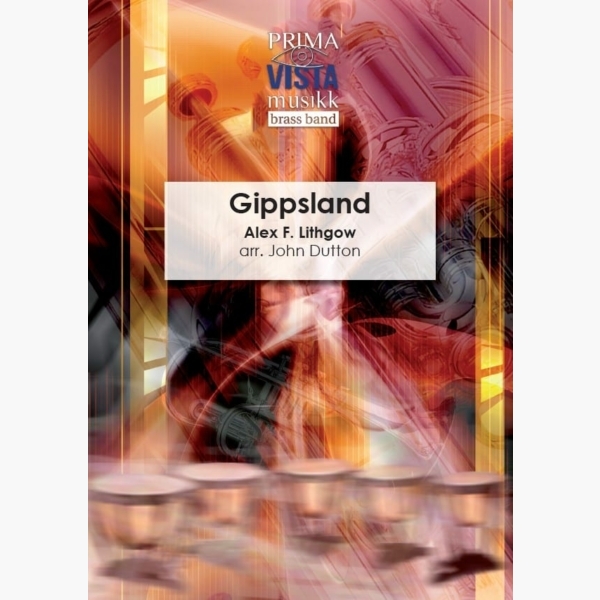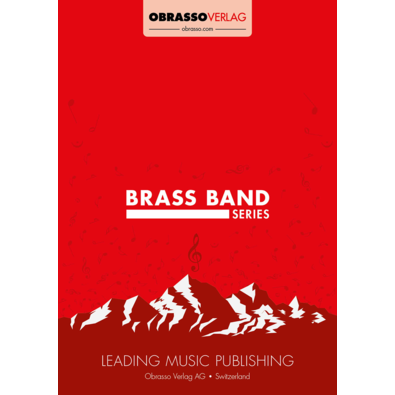Results
-
 £24.95
£24.95Gippsland - Alex F Lithgow - John Dutton
Alexander Frame Lithgow (1870 - 1929) was a Scottish-born, New Zealand and Australian-based composer and bandleader, known as the "Sousa of the Antipodes". In 1876, the Lithgows emigrated to Invercargill, New Zealand. After initially having cornet lessons from his father,...
Estimated dispatch 5-7 working days
-
£29.95
INVINCIBLE ARMY, The (Brass Band Set) - Erik Leidzen
When the New York Staff Band toured England in 1960 they featured much new music written for them by Erik Leidzen, including this march. The trio section is in the unusual key (brass band pitch) of Db major, a major third away from the opening key of F major, rather than the more predictable subdominant of Bb major. This presents a technical and mental challenge to the players but provides a particularly brilliant sonority when played in tune!
Estimated dispatch 7-14 working days
-
£34.95
TUCKER (Cornet Solo with Brass Band Set) - Erik Leidzen
Originally published in the Festival Series in 1933 and written by the master of solo writing, Erik Leidzen, this has become, in Salvation Army circles, a 'standard' for all aspiring cornetists, exploring the full range of the instrument from bottom F# to top D.
Estimated dispatch 7-14 working days
-
£19.95
BOYS OF THE OLD BRIGADE (Brass Band Set) - F. Wright
Estimated dispatch 7-14 working days
-
£30.25
Mephisto's Dance - Liszt, F.
Estimated dispatch 5-7 working days
-
 £54.20
£54.20 -
 £54.20
£54.20 -
 £50.90
£50.90Lueget, vo Berg und Tal - Ferdinand F. Huber - Christoph Walter
Estimated dispatch 5-10 working days
-
 £50.90
£50.90 -
 £54.20
£54.20
